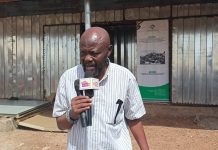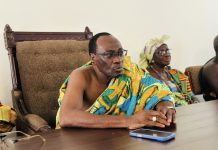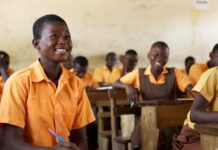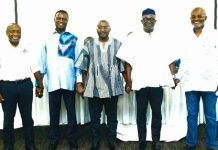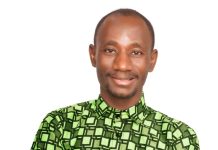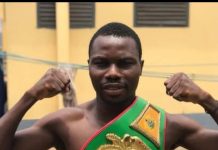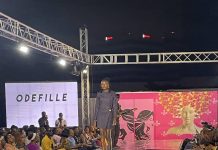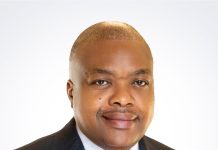DUBAI, United Arab Emirates, March 8, 2022/ — Saudi-American documentary photographer Tasneem Alsultan is best known for her work on gender and social issues in Saudi Arabia and the Middle East.
We sat down with her to talk about how she uses her photography to change the narratives that surround women and men in Saudi Arabia and the importance of having greater representation behind the lens.
How did you get into photography?
My interest in photography began when I was about nine years old and I asked my parents for a camera for my birthday. They bought me a cheap camera with about 30 frames on it, which I used to document everything.
Professionally, it wasn’t until about 2010 that my career kicked off. It started when I moved to Saudi with my daughters, and I wanted to capture the move and their experience. At the time, I didn’t know how to use lighting or the camera settings and manual functions. I had the tools, but not the knowledge. I played around with it and got some photos which I shared on Facebook. I ended up receiving around 1000 likes and all these messages from people wanting me to take photos of their children. At first, I was just shooting them on my camera and printing them at home to send to people and now my photos of Saudi women have been showcased in photography festivals around the world.
What, if any, barriers have you faced as a female photographer and how do you feel you’ve overcome them?
At the time I started photography, I was working as a lecturer teaching English as a second language. I had no background in photography – in fact, my Master’s degree was in anthropology – but I’d always had a dream to do something more artistic. I never expected that one day I’d be a professional photographer, so in a sense the barrier I faced was my own – an internal mental block.
I just didn’t think I could do it. However, after a year or so of capturing photos of people’s children, I was asked to shoot a wedding. It was at this point that I became really invested in myself as a photographer, because if someone is paying you to document your wedding, then you really need to know how to use your kit and to predict when those special moments are coming.
What inspired you to capture gender and social issues in Saudi Arabia?
Well, my photography mirrors what I was focusing on in my thesis around Saudi women and their understanding of themselves in relation to Saudi men. Saudi has a variety of people with different backgrounds, ethnicities and cultures, but they were united by the fact that women were seen as less important than men. Up until a year ago, my father was my legal male guardian. He allowed me to travel, but for many women their male guardians wouldn’t have allowed this.
Now, with the leadership of the crown prince we are witnessing change. For instance, women are now able to drive. Analysing these changes in a written thesis is so different to having a visual archive. That’s why I am so passionate about capturing these sociocultural changes and one day being able to show my daughters how things have transformed for women.
How do you feel about the way women have historically been portrayed through imagery? Are there stereotypes or biases you feel have been reinforced by photos?
In photos, Saudi women tend to be portrayed as victims, and our men villainised and it’s just not always accurate. My grandparents insisted that all their daughters were treated the same as their sons. My mother was supported by her father to go to school, and she is a professor and dean of a university. In fact, many women of her generation became doctors, engineers and CEOs.
I grew up surrounded by women who had careers and that’s not like the stereotype that’s perpetuated of Saudi women as ‘stay-at-home princesses’. People forget that the change we are seeing is not something that’s just happened over night, it’s been happening for generations enforced by my parents and grandparents.
My job is to portray Saudi women with more respect than they are normally given. You can always tell if a photo of a Saudi woman has been taken by another woman or a local, because they will leave room for their story. I love photographing the women of Saudi in the way they see themselves – I let them instruct me when I take their picture. They usually choose the location and what to wear.
How important is it to have a woman behind the lens?
It’s incredibly important to have representation. Even if I wasn’t documenting Saudi women in relation to Saudi men, I have to be able to relate to my subjects beyond just seeing them as a stereotype. Many women in this part of the world have been marginalised and stereotyped by the rest of the world and that’s incredibly harmful. They are not just subjected to this view by Saudi men, but the rest of the world.
When I photograph my subjects, I give them the agency to direct me in the way they want to be perceived. Even if one of my subjects has been abused, I don’t want to just portray them as a victim – many of these women are superheroes. For instance, one woman I captured who wanted to get out of her marriage went and found her husband a second wife, she paid her dowry and then divorced him.
It would be so inaccurate for me to just portray her as someone that was physically and emotionally abused, when she was strong enough to do all this and free herself. There are so many women that have surpassed the obstacles and constraints of society, religion and even our own government. That’s why its important to have photographers that relate to their subjects and try to understand them on a deeper level – not just by portraying a stereotype.
What can photography bring to this narrative that words can’t?
Instead of writing a thesis that only a few people would read, one image can be as striking as a whole book. If that shot triggers emotion, then I’ve succeeded as a photographer. That’s my aim – to have an impact on people around the world who may never get a chance to meet these women. I want to change the way the rest of the world sees Saudi women and help people relate to them. Emotionally we are all very similar – we grieve and celebrate in the same way, but a lot of the differences we see are portrayed by the media.
How important is education and what further action is needed?
My dream would be to have my images printed and displayed somewhere outside of the Middle East. Already, my images have been in a photo festival in Nepal and the impact of it was incredible.
Prior to the festival, I was a bit apprehensive about what the Nepalese opinion of Saudi women would be, but it was completely different to what I experienced. I remember being at the festival and a Nepalese man stopped and looked at one of the pictures and said, “I can relate to this woman. I just got divorced and am a child of divorce.” Another said, “Oh I relate to this woman and the struggle of raising my kids on my own.” They looked past the clothes and the homes and saw the person within. And that’s my goal as a photographer to break down some of those borders.
If you are a female photojournalist inspired by Tasneem’s story, why not consider applying for Canon’s Female Photojournalist Grant (https://bit.ly/35CwoEN).
Applications will open on 15th March 2022.
About Tasneem Alsultan:
Born in the US and raised between the United Kingdom and Saudi where she is currently based, Tasneem Alsultan is an investigative photographer, storyteller and global traveller.
With an inquisitive eye and camera at hand, she offers intimate and unique perspectives into the everyday lives of her subjects, telling their stories from her heart while striving to humanize and connect their realities to her audiences. Her work largely focuses on documenting social issues and rights-based topics in Saudi Arabia and the Arab Gulf region through a gender lens, challenging stereotypical perceptions of the Middle East and portraying a region and people that do not conform to expectations.

